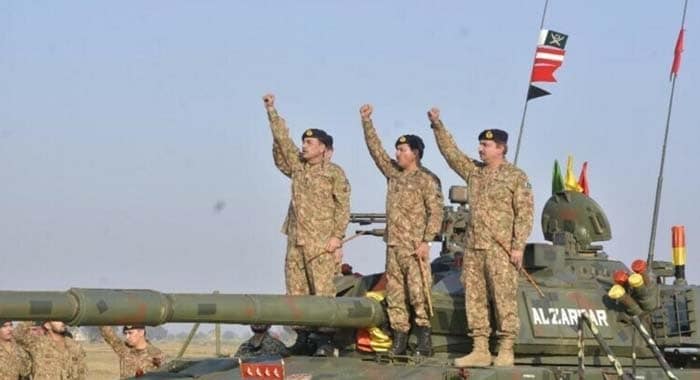Field Marshal Syed Asim Munir’s recent remarks at a luncheon hosted in honour of Jordan’s King Abdullah II at Aiwan-e-Sadr offered more than ceremonial commentary they served as a forceful reminder of Pakistan’s strategic posture, its historical resilience, and the evolving threats reshaping South Asia’s security environment. His words echoed far beyond the corridors of Islamabad; they were an unmistakable signal to adversaries and a reassurance to the people of Pakistan.
Calling Pakistan a peace-loving nation, the field marshal underscored a principle that has long guided Pakistan’s military doctrine: the desire for stability without compromising the country’s dignity or sovereignty. Yet his message carried a resolute warning any conflict imposed on Pakistan will be met with the same decisive response delivered in May. Without delving into classified specifics, he drew upon the enduring lessons of the Battle of Uhud and the Quranic reminder that trust in God transforms even “dust thrown at the enemy into a missile.” This spiritual analogy, paired with confidence in Pakistan’s defensive capabilities, framed a narrative of faith, preparedness, and strategic clarity.
Relations between Pakistan and India have rarely been straightforward. Persistent mistrust, border tensions, political grandstanding, and disinformation campaigns have continuously undermined the prospects of meaningful dialogue. In this fraught environment, the field marshal’s assertion that Pakistan had forcefully responded to Indian aggression and would continue to do so was not merely a military statement but a calibrated political signal.
It reaffirmed what many security analysts already recognize: strategic stability in South Asia remains fragile, and India’s coercive tactics military, diplomatic, and informational continue to complicate regional peace prospects. Whether through aggressive posturing along the Line of Control, internal repression in Kashmir, or covert support to anti-Pakistan elements, India has invested deeply in maintaining a confrontational doctrine.
Yet the more alarming dimension of today’s landscape lies to the west. Recent attacks on Pakistani border posts from Afghan territory have strained bilateral relations and raised urgent questions about Kabul’s intentions. Despite decades of hospitality extended to millions of Afghan refugees and consistent support for Afghanistan on global platforms, Pakistan today finds itself facing an increasingly hostile neighbour.
According to Pakistani security officials, groups such as the Tehreek-e-Taliban Pakistan (TTP) continue to operate from Afghan soil with impunity. Kabul’s reluctance or refusal to restrain these factions has eroded trust. Worse still is the perception that the Afghan Taliban regime, in its search for internal legitimacy and strategic leverage, has begun echoing India’s anti-Pakistan rhetoric.
This shift is not accidental. India has historically sought to exploit Afghan soil to destabilise Pakistan. From facilitating hostile propaganda to funding separatist elements in Balochistan, New Delhi’s intelligence networks have long operated with regional ambitions in mind. What is new and deeply concerning is the Taliban government’s apparent willingness to align with these designs.
Recent Indian media reports, including an investigative piece by India Today, suggest a far broader agenda: India’s purported involvement in financing and assisting the construction of multiple dams on the Kunar River, a project with potentially severe consequences for Pakistan’s water security. An alleged offer of $1 billion to the Taliban regime and the technical backing for dams such as Naghlu, Darunta, Shah Waroos, Gambir, and Baghdara deepen fears of deliberate hydrological pressure on Pakistan.
If true, these developments transcend politics they constitute strategic coercion. Water is the lifeblood of Pakistan’s agriculture, economy, and human survival. Any attempt to manipulate river flows under the guise of development would represent an existential threat. The Pakistan–India military comparison often dominates public debate, but it ignores a critical truth: wars are not won solely through financial outlays. Pakistan, despite its comparatively limited resources, has consistently maintained an effective and credible defence strategy. This is due not only to the courage of its soldiers but also to decades of strategic discipline, intelligence successes, and efficient resource utilization.
The field marshal’s statements reflect this confidence. Pakistan understands the gravity of its challenges but also recognises its own strengths—unity, strategic depth, professional armed forces, and the moral clarity that comes from defending one’s homeland.
The Afghan Taliban regime today stands at a crossroads. It can either preserve regional stability by valuing Pakistan’s historic goodwill or sacrifice its long-term interests by becoming a pawn in India’s expansionist playbook. No Afghan government has ever benefited from antagonising Pakistan, and this time will be no different. Should Kabul continue down a path of hostility, the consequences will fall on Afghanistan itself, not just Pakistan.
As the field marshal’s remarks imply, Pakistan’s greatest strength lies not merely in its military power but in the unity and resolve of its people. Nations are weakened from within before they fall from without. A cohesive, confident, and purpose-driven Pakistan leaves no room for external manipulation.
India’s designs, Afghanistan’s opportunism, and the broader geopolitical competition must be met with national discipline, political stability, and strategic foresight. Pakistan is not without challenges, but neither is it without the ability to overcome them. In the end, Pakistan’s defence is safeguarded not only by its weapons but by the collective will of its citizens, its leaders, and its institutions. If that unity persists, no adversary regional or global can undermine Pakistan’s sovereignty or its future.





